I'm honored to have Karen Jacobsen – The GPS Girl® – as my guest blogger. Read her top 10 tips for having a healthy voice.
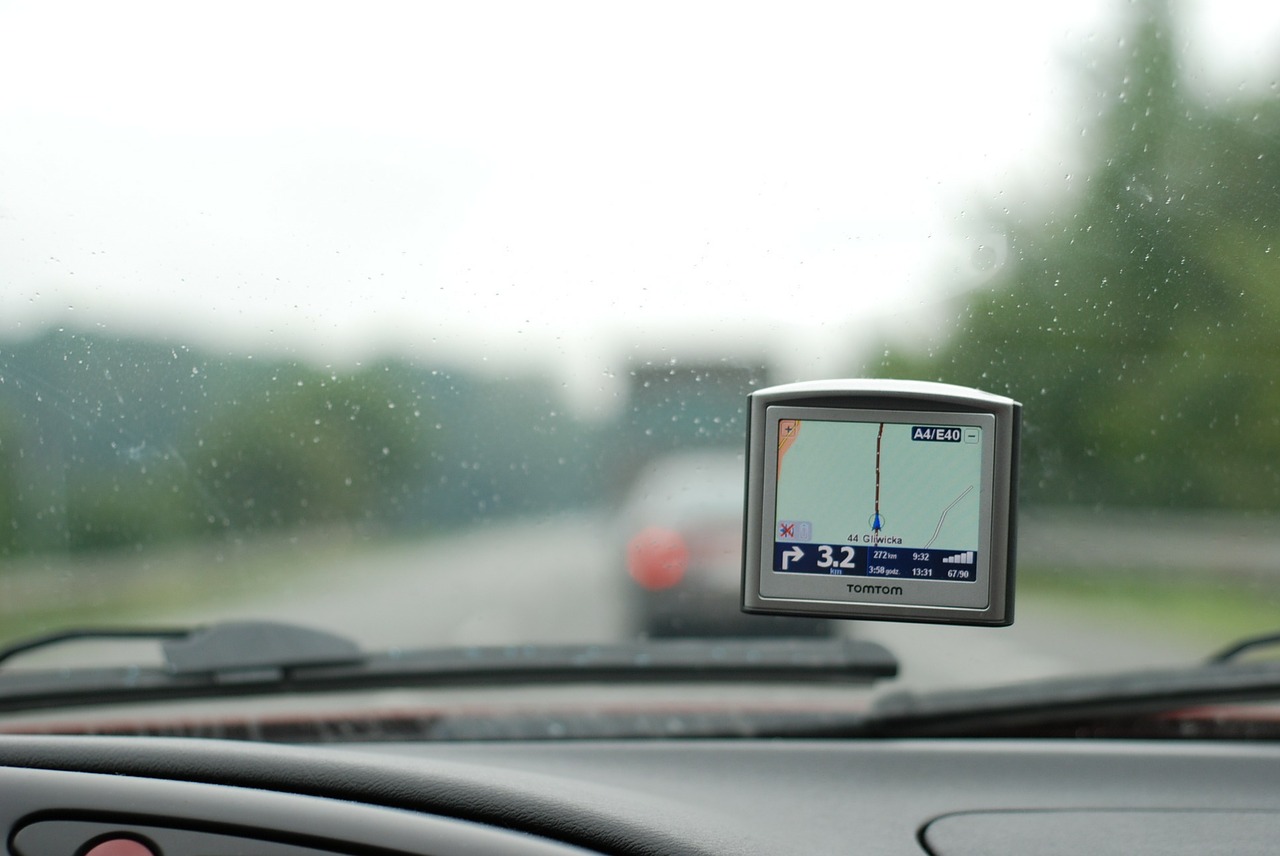 Whether you are a professional speaker or a business professional your voice is a key asset. It’s the core of our ability to communicate, to get our ideas across and to be heard. As a professional speaker and singer my voice is essential to my profession. What I have discovered is that excellent vocal health happens to also result in excellent overall health.
Whether you are a professional speaker or a business professional your voice is a key asset. It’s the core of our ability to communicate, to get our ideas across and to be heard. As a professional speaker and singer my voice is essential to my profession. What I have discovered is that excellent vocal health happens to also result in excellent overall health.
Here are some of the ways I protect my voice on a daily basis:
- Be Rested
To maintain a healthy voice one of the basics is getting enough rest. I have to make sure I am on top of getting a good 8 hours of sleep per night consistently to keep my voice in great shape. Put sleep in your calendar like an important appointment (because it is) and prevent being run down.
- Drink a Crazy Amount of Water
This is an absolute essential. I drink 6 - 10 glasses of water throughout the day (did you know that 80% of Americans are dehydrated?) and I also drink tea. I prefer almost tannin-free tea and make sure I am drinking water and tea all day long. If you need to, set an alarm several times a day as a reminder.
- Honey is My Secret Weapon
Honey has amazing healing properties, pleasant to taste and is very soothing. If I am feeling a little tickle in my throat or I am vocally tired, I will have a spoonful of honey. It's one of the ways I will fight off something, by having a teaspoon of honey every hour or half hour, especially before bed.
- Carry a Scarf
I carry a scarf with me 12 months of the year as I am often in some kind of artificially heated or cooled environment. Even in the height of summer when walking into a restaurant or a convention room it is icy. Being able to protect my throat with a scarf helps my body temperature and specifically my throat. If I find my throat or neck is exposed and it is unusually cool I can catch a chill and it can be downhill from there, potentially leading to a vocal problem.
- Oil Pulling
We already know about keeping hydrated and I recently learned about an ancient Ayurveda treatment called Oil Pulling. This is amazing for overall health, and involves swishing cold-pressed organic sesame oil in the mouth for between 7 and 20 minutes first thing each morning. I learned this from a top New York vocal coach, Joan Baker, and a great side effect is a vast improvement in dental health. There is a lot of excellent information online about oil pulling.
- Yelling is Telling
If you are in a loud environment and straining to be heard over music or talking, or at a sporting event, do not yell. Do not scream. Do not cheer super loudly. It's something to be extremely conscious of to protect your voice.
- If it Hurts, Don't Do It
This may sound pretty obvious, but we've all been in a situation where we are a little too exuberant with our voice and it starts to hurt. You may be giving a presentation and the microphone isn't working properly, or you are trying to be heard over loud music or conversation. If it hurts in any way, it is hurting your vocal cords and could lead to major problems.
- Beware of Dairy
If you have to use your voice more than usual and know you will have to talk with people all day long at a conference or trade show, or with back to back business meetings when you are usually have a quieter workday in the office, watch how much dairy is in your diet. It can create more mucus and the vocal passages are not as clear.
- Skip the Ice
In the U.S. ice is routinely served in cold drinks and this can lead to big vocal problems. It can tighten or numb your vocal cords, and for me it just irritates my throat and leaves me more susceptible to a sore throat. Always ask for water with no ice and wean yourself off ice in all beverages. This can have an amazing impact on your vocal comfort.
- Clearing your Throat can Cause Injury
Do not under any circumstances 'clear your throat.' This can actually injure your vocal cords. Instead, take a sip of water, cough gently or swallow to clear the throat
Building the strength of your voice and preventing vocal problems is a lot more enjoyable than having them show up. Rest, hydrate and pay attention to the way you are using your voice on a daily basis and enjoy excellent vocal health. You might just feel so much better in the process.
Karen Jacobsen is The GPS Girl®, an entertainer who moved in 2000 from Australia to New York with a suitcase and a dream. Karen gives directions as the speaking voice of “Australian Karen” in over 400 million GPS and smartphone devices around the world. A professional speaker, singer and voice-over artist, Karen travels the world speaking and performing concert-style keynotes to groups who want to be able to “recalculate” and give their best in business and life. Karen has appeared on ABC World News Tonight, NBC Today Show, CBS Early Show, Inside Edition, NPR, The New York Times, NY Daily News, Glamour Magazine, and was named one of People Magazine’s Most Intriguing People. Sharing the bill with Norah Jones, Neil Sedaka and Christopher Cross, she has performed The Star Spangled Banner at many major sporting events including the New York Jets game at Giants Stadium. Karen Jacobsen currently serves as President of the National Speakers Association-New York City.
For more information visit thegpsgirl.com. Connect with her @thegpsgirl on Twitter and Facebook.com/thegpsgirl
 After watching the first GOP Debate on TV, I was struck at the lack of skill of some the moderators. These are professional broadcast journalists and you would think their public speaking training in front of the camera would be evident.
After watching the first GOP Debate on TV, I was struck at the lack of skill of some the moderators. These are professional broadcast journalists and you would think their public speaking training in front of the camera would be evident.

 Whether you are a
Whether you are a 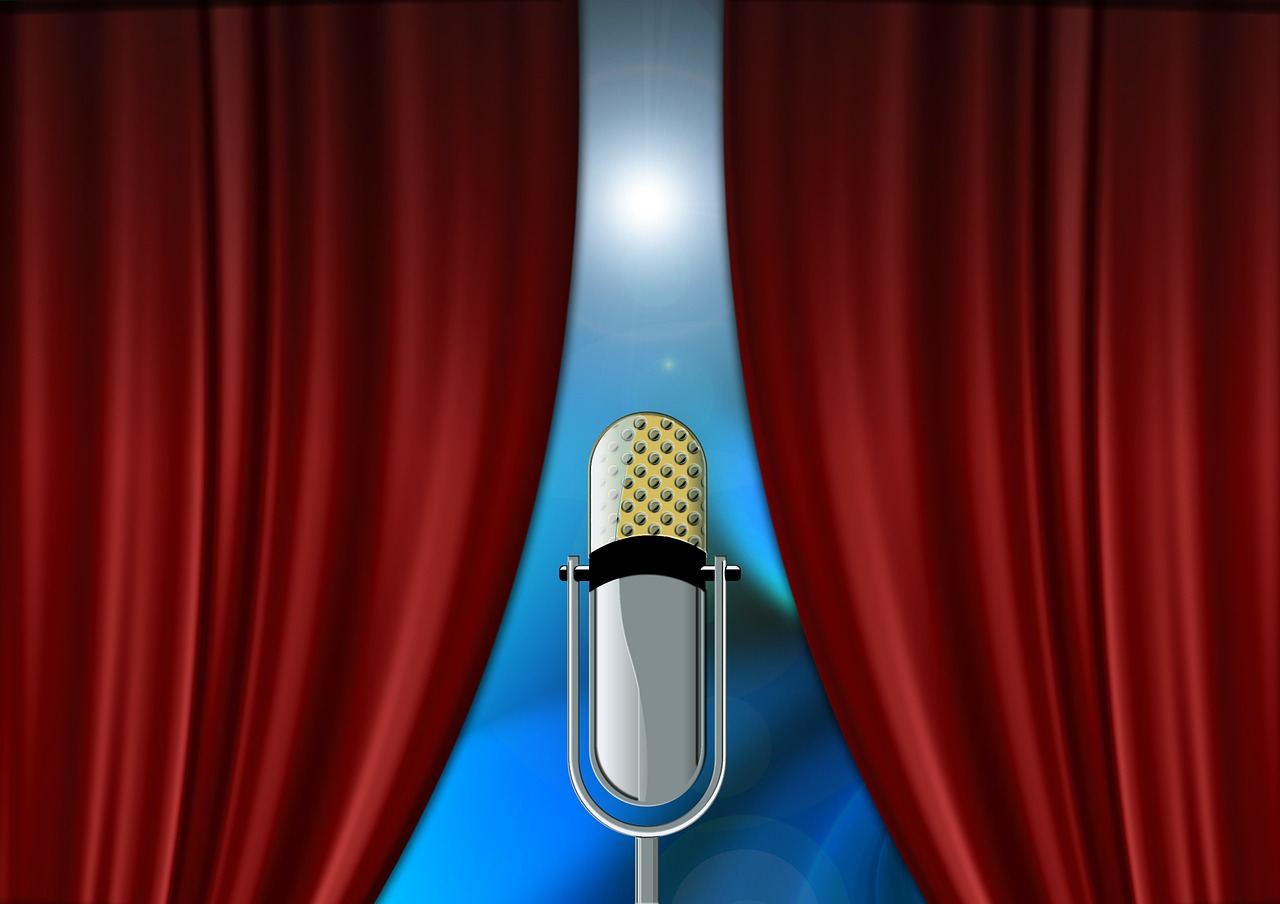 What if this happened to you? You prepare a presentation, and then the public speaker before you uses up all the time. What if you only had 6 seconds? Would you give a presentation or would you pick up your marbles and go home?
The public speaking game has changed.The digital age requires speed,
What if this happened to you? You prepare a presentation, and then the public speaker before you uses up all the time. What if you only had 6 seconds? Would you give a presentation or would you pick up your marbles and go home?
The public speaking game has changed.The digital age requires speed, 
 Are you a perfectionist? Get over it. It's killing your presentation. In every
Are you a perfectionist? Get over it. It's killing your presentation. In every 
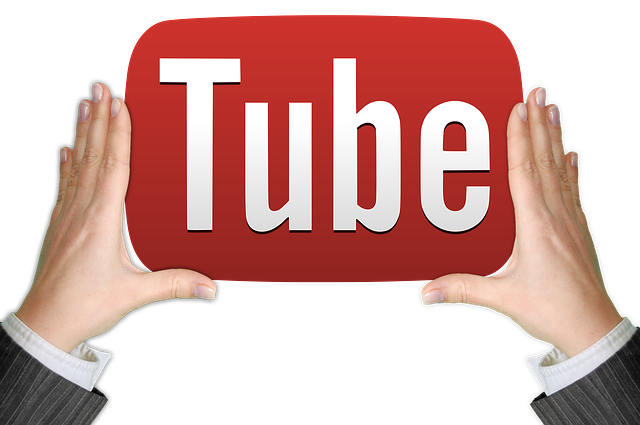 Anthrax isn't the only bacteria we need to worry about. There's a vocal virus that is sweeping the nation.
In the last few days, I've been getting more responses to a video on
Anthrax isn't the only bacteria we need to worry about. There's a vocal virus that is sweeping the nation.
In the last few days, I've been getting more responses to a video on 
 What would you say if you were asked to give a commencement address? You don't have to be famous to
What would you say if you were asked to give a commencement address? You don't have to be famous to 
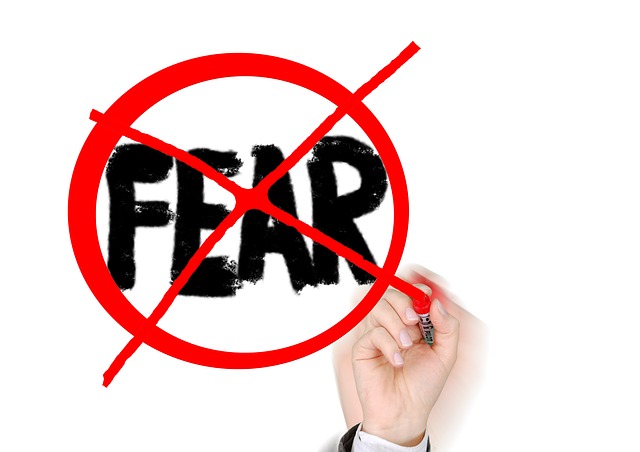 We've all been there - the racing heart, the sweating palms, the cotton mouth. Many clients call me because they're nervous or experiencing
We've all been there - the racing heart, the sweating palms, the cotton mouth. Many clients call me because they're nervous or experiencing 

 Do you need a check-up from the neck up? May is Better Speech and Hearing Month and all month I'll be sending you tips on
Do you need a check-up from the neck up? May is Better Speech and Hearing Month and all month I'll be sending you tips on 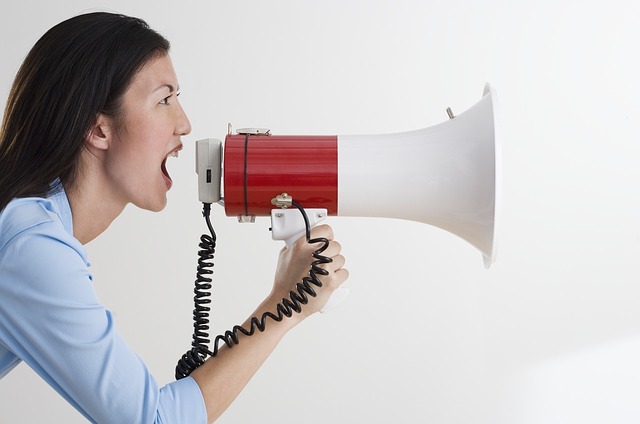 Do you have a voice? Voice matters. Everyone has a right to express their voice. But you can't do that if you've lost your voice. It's World Voice Day,
a day dedicated to the care of the voice. You use your voice everyday and vocal misuse and abuse are not uncommon. Follow these tips for a healthy voice.
Do you have a voice? Voice matters. Everyone has a right to express their voice. But you can't do that if you've lost your voice. It's World Voice Day,
a day dedicated to the care of the voice. You use your voice everyday and vocal misuse and abuse are not uncommon. Follow these tips for a healthy voice.
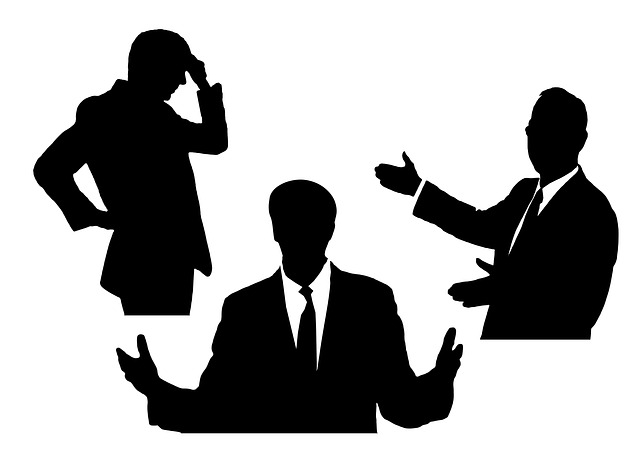 What's more important? Style or Substance? Sizzle or Steak? I ask this question in my public speaking and
What's more important? Style or Substance? Sizzle or Steak? I ask this question in my public speaking and ![By Wikimania2009 Beatrice Murch (originally posted to Flickr as Audience) [CC BY 2.0 or CC BY 3.0], via Wikimedia Commons](http://static1.squarespace.com/static/584471bcd2b857fe8823846d/584aee108eaa8960076ec201/584aee288eaa8960076ec54a/1481305640928/Audience_-_Stallmans_pre-Wikimania_2009_talk_-_Wikimania_2009.jpg?format=original) Does your
Does your 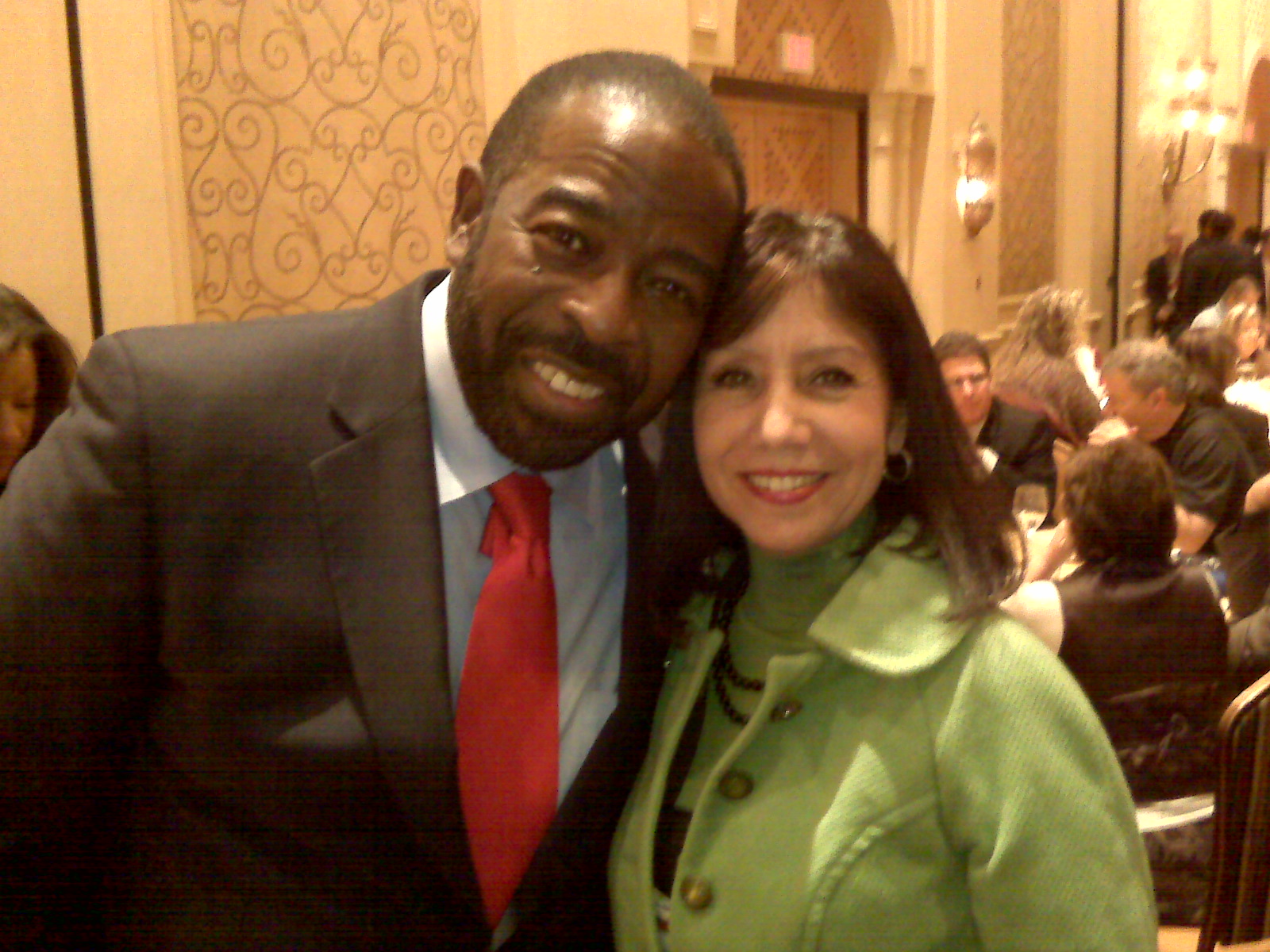 I entered the office building in anticipation of meeting a prospect. The first person I saw was the receptionist. Usually, a receptionist will say, "May I help you?" But this receptionist stood out. She did something that made her immediately attractive and memorable. Without saying a word, she conveyed, "Welcome, I'm happy to see you". She did this with a smile. No, not an ordinary quick flash of the teeth.She was beaming. It was a genuine, happy smile. She smiled with her mouth and her eyes. It was so disarming that I complimented her on her welcoming gesture. Her facial expression communicated that she liked her job and that she liked people.
This receptionist didn't know she was giving a
I entered the office building in anticipation of meeting a prospect. The first person I saw was the receptionist. Usually, a receptionist will say, "May I help you?" But this receptionist stood out. She did something that made her immediately attractive and memorable. Without saying a word, she conveyed, "Welcome, I'm happy to see you". She did this with a smile. No, not an ordinary quick flash of the teeth.She was beaming. It was a genuine, happy smile. She smiled with her mouth and her eyes. It was so disarming that I complimented her on her welcoming gesture. Her facial expression communicated that she liked her job and that she liked people.
This receptionist didn't know she was giving a